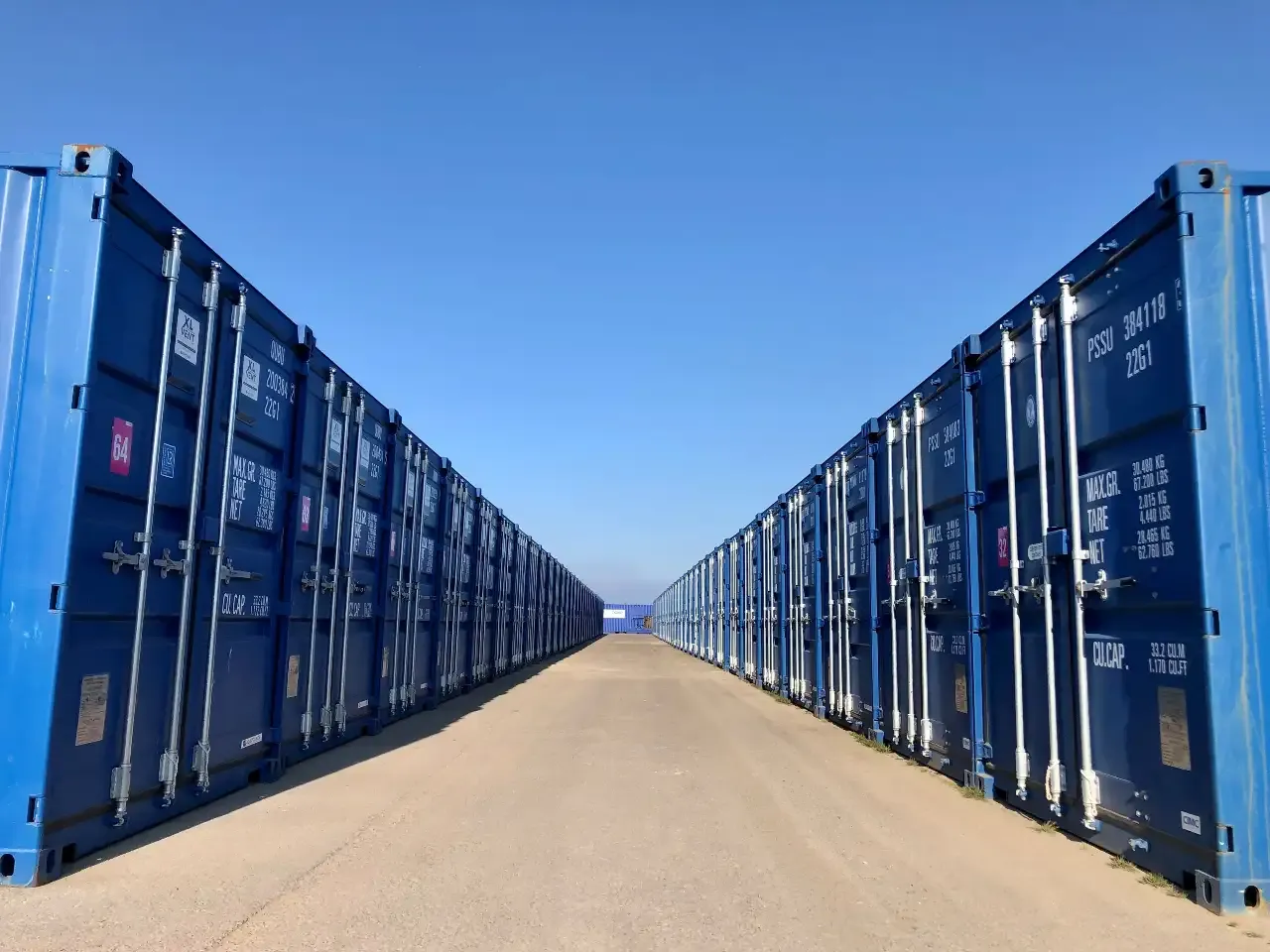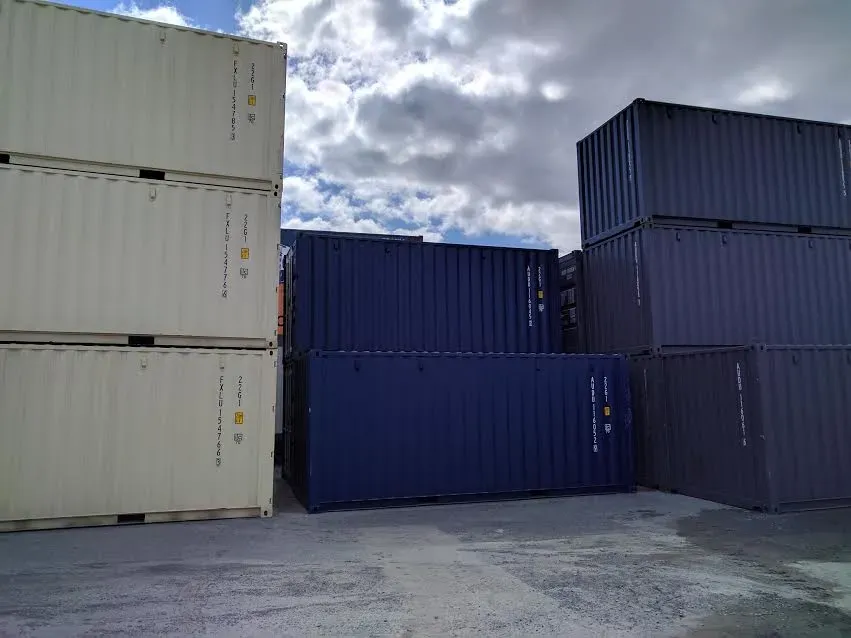The Ultimate Guide To Renting Shipping and Storage Containers

Container rentals have become an integral part of various industries, offering a versatile solution for storage, transportation and even construction. Whether you are a business owner, a homeowner, or a project manager, understanding the nuances of container rentals can help you make informed decisions and maximize the benefits these containers provide. In this comprehensive guide, we will delve into the world of container rentals, covering everything from types of containers to key considerations when renting and the diverse applications these containers serve.
Understanding Container Types
Before diving into the rental process, it's crucial to familiarize yourself with the different types of containers available. Shipping and storage containers come in various sizes and materials, each designed for specific purposes.
Standard Shipping Containers:
- Dimensions: Typically 20 or 40 feet in length, with a standard width and height.
- Material: Made of steel to withstand harsh weather conditions during shipping.
- Common Use: Ideal for transporting goods globally, storage, or on-site offices.
High Cube Containers:
- Dimensions: Similar to standard containers but with extra height, providing more storage space.
- Material: Also made of steel.
- Common Use: Suitable for transporting larger items or for storage requiring additional vertical space.
Refrigerated Containers:
- Dimensions: Available in various sizes with insulation and a cooling system.
- Material: Steel construction with added insulation.
- Common Use: Used for transporting perishable goods, pharmaceuticals, or as temporary cold storage.
Open-Top Containers:
- Dimensions: Similar to standard containers but with a removable top.
- Material: Steel.
- Common Use: Perfect for transporting or storing goods that require top-loading, such as machinery.
Flat Rack Containers:
- Dimensions: Feature collapsible sides for easy loading and unloading of heavy machinery or equipment.
- Material: Steel.
- Common Use: Ideal for oversized cargo or items that cannot fit into standard containers.

Choosing the Right Container
Selecting the right container for your needs is a crucial step in the rental process. Consider the following factors:
Size Requirements:
- Assess the volume and dimensions of the items you need to transport or store. Choose a container size that accommodates your needs without excess space.
Material and Durability:
- Depending on your application, choose a container made from suitable materials. Steel containers are robust and weather-resistant, while refrigerated containers provide temperature-controlled storage.
Accessibility:
- If you require easy access to the contents, consider open-top or flat rack containers. On the other hand, if security is a top priority, standard containers with secure, lockable doors are a better option.
Specialized Features:
- For specific needs like temperature-sensitive items, opt for refrigerated containers. For oversized cargo, flat rack containers are more suitable.
Renting Process
Once you have determined the type of container you need, the next step is to navigate the renting process. Follow these steps for a smooth experience:
Research and Compare Rental Companies:
- Conduct thorough research on container rental companies in your area. Compare prices, reviews and the range of services offered.
Request Quotes:
- Contact multiple rental companies to request quotes based on your specific requirements. Ensure the quotes include all relevant costs, such as delivery, pickup and any additional fees.
Check Container Conditions:
- Before finalizing the rental, inspect the containers offered by the rental company. Ensure they are in good condition, free of leaks and have functioning doors and locks.
Understand Rental Terms:
- Carefully read and understand the rental agreement, including terms and conditions, duration and any penalties for damages or late returns.
Delivery and Pickup Logistics:
- Coordinate with the rental company regarding the delivery and pickup logistics. Confirm the delivery date and ensure the location is accessible for container placement.
Applications of Container Rentals
Container rentals have diverse applications across various industries, showcasing their adaptability and versatility. Here are some common uses:
Construction Sites:
- Containers serve as on-site offices, storage for tools and equipment, or even temporary housing for construction workers.
Retail and Business Storage:
- Businesses use containers for excess inventory storage, seasonal items, or as a cost-effective alternative to traditional warehouse space.
Residential Moves and Renovations:
- Homeowners can use containers for temporary storage during a move or renovation, providing a secure and convenient solution.
Events and Festivals:
- Containers can be converted into pop-up shops, ticket booths, or storage for event equipment, adding a unique and functional element to festivals and events.
Agriculture and Farming:
- Farmers utilize containers for secure storage of equipment, tools and harvested crops, protecting them from the elements.
Considerations for Long-Term Rentals
If you anticipate needing a container for an extended period, there are additional factors to consider:
Maintenance and Repairs:
- Discuss maintenance responsibilities with the rental company. Determine whether they will handle repairs or if you are responsible for addressing any issues that may arise during the rental period.
Customization Options:
- If you require specific modifications, such as additional doors, windows, or ventilation, inquire about customization options offered by the rental company.
Security Measures:
- Implement additional security measures if necessary, such as installing security cameras or hiring onsite security personnel.
Insurance Coverage:
- Verify whether the rental company provides insurance coverage for the container and its contents. If not, consider obtaining insurance to protect against potential losses or damages.
Conclusion:
Container rentals offer a practical and cost-effective solution for various storage, transportation and construction needs. By understanding the types of containers available, choosing the right one for your specific requirements and navigating the rental process with careful consideration, you can harness the full potential of container rentals. Whether you are a business owner, homeowner, or involved in a specific industry, incorporating containers into your plans can streamline operations and provide a flexible solution for your unique needs.
